News + Media
 |
In the NewsJanuary 13, 2020How exiled Saudi Arabian activists are quietly building a resistance movementTy JoplinAl BawabaAl Bawaba spoke with Hala Aldosari, a Saudi human rights activist who stands on the vanguard of digitally organizing a resistance movement to the Saudi regime while in exile. |
 |
In the NewsJanuary 8, 2020How an Iranian cyberattack might startMarketplaceDavid Edelman quoted: Iran has promised retaliation following the US killing of its top commander, and one form that could take is cyberattacks. Iran is not considered the most sophisticated cyber actor, but David Edelman said it has attacked and been the target of attacks, so it has an unusual amount of experience with hacking. |
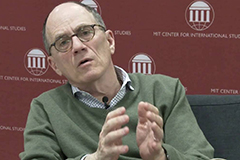 |
In the NewsJanuary 8, 2020What's the path forward on Iran?Tiziana Dearing, Jamie BolognaWBUR Radio BostonNow a senior research fellow at CIS, Joel Brenner—former inspector general of the National Security Agency and head of US counterintelligence in the Obama administration—joins us to make sense of where we are with Iran and what happens next. |
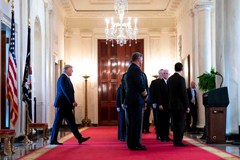 |
In the NewsJanuary 8, 2020Trump’s inaccurate statements about the conflict with IranLinda QiuThe New York TimesJim Walsh quoted: Mr Trump’s claim blaming the nuclear accord for Iranian aggression rather than his withdrawal from it is “almost an inverted reality,” said Jim Walsh, a research associate at MIT’s Security Studies Program and an expert on nuclear issues and the Middle East. |
 |
In the NewsJanuary 8, 2020After Iran strikes back, President Trump indicates a de-escalationJim BraudeWGBH Greater BostonJim Walsh, a senior research associate at MIT’s Security Studies Program, joined Jim Braude to discuss the events of the last week and what else may be on the horizon in US-Iran relations. |
 |
In the NewsJanuary 7, 2020Jeanne Guillemin, biological warfare expert and senior advisor at MIT, dies at 76Michelle EnglishMIT NewsJeanne Guillemin was described by The New York Times as a “scientific sleuth” and the Washington Post as a “pioneering researcher” in obituaries that lauded her groundbreaking work in biological warfare — a field where men had long outnumbered their female colleagues. |
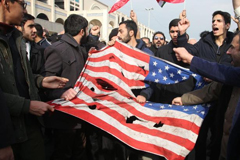 |
In the NewsJanuary 6, 2020Iran drives another stake into the heart of the nuclear dealTim ListerCNNVipin Narang quoted: Vipin Narang, Associate Professor of Political Science at MIT, points out that despite Iran's announcement that it won't abide by enrichment levels and quantities set by the JCPOA, "it is still quite far from having enough enriched uranium for a bomb, let alone a functional arsenal because...of the JCPOA." |
 |
In the NewsJanuary 5, 2020Iraqi parliament votes to expel US troops from countryFox NewsSenior Research Associate at MIT’s Security Studies Program Dr Jim Walsh on the US airstrike that killed top Iranian general Soleimani. |
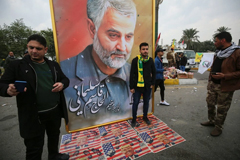 |
In the NewsJanuary 4, 2020Did the killing of Qassim Suleimani deter Iranian attacks, or encourage them?Amanda TaubThe New York TimesVipin Narang quoted: “He was a monster, no question,” said Vipin Narang, an MIT political scientist who has studied efforts to halt Iran’s nuclear program. “But there’s a consequentialist argument as well.” Dr Narang said the deterrence argument “assumes a unitary, rational actor.” While he said that could apply to Iran, which may want to avoid war, it may not apply, say, to Hezbollah, which Iran backs in Lebanon. |
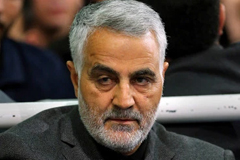 |
In the NewsJanuary 3, 2020Qassem Soleimani long targeted the United StatesSean Philip CotterBoston HeraldJim Walsh quoted: “Soleimani was a central figure in Iran — he was Iran’s military representative to the Middle East,” Jim Walsh, an expert on terrorism and the Middle East at the Massachusetts Institute of Technology, told the Herald. “There was sort of a cult of personality about him, and people thought of him as being talented.” |

